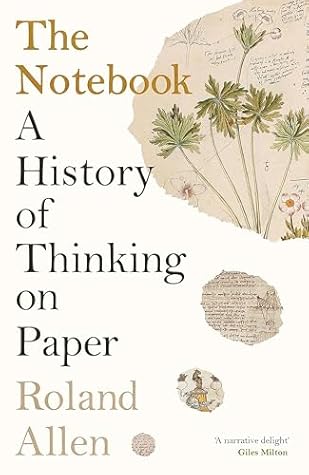More on this book
Community
Kindle Notes & Highlights
They didn’t like paper’s suspiciously infidel origins, its novelty, or its recycled origins: one opponent fulminated against the idea that the word of God could be written on menses-stained rag.
The collection of quotations was not Erasmus’s invention: Pliny the Younger, fourteen hundred years earlier, had written that his uncle, Pliny the Elder, ‘never read without taking extracts, and used to say that there never was a book so bad that it was not good in some passage or another’.
For them, the work of selection and copying was the very point, as it taught discrimination and trained the mind.
His observations might be of consequence to no-one but himself, but isn’t it a happy thought that such documents can survive for centuries, intimate memorials to their owners’ preoccupations – unremarkable, hardly read, yet every one unique?
The actor Alec Guinness’s Commonplace Book was gathered from two exercise books he left at his death in August 2000. This is a modern(ish) gem of a zibaldone, with quotations from favourite books, anecdotes from the theatre, and remarks overheard on the street.
The novelist Nicholson Baker essays entertainingly about his own ‘copybooks’. Copying, he says, ‘can calm and steady your state, not to mention improve it, for while the transcribing may appear to be a form of close and exclusive concentration, it has an equally important element of peaceable meditative mindlessness as well, like playing with a paper clip’.
Humanist common-place books reflected this, the headwords serving to limit the writer’s scope in a way that a zibaldone never had.
But William’s 126-page record of the city makes him one of the first urban topographers, and illustrates a common paradox – that historians often learn more about a place from notes made by visitors than from records left by residents. Outsiders tend to be more acute observers than natives.
This monitoring system lasted for about eighty years, until the advent, in the 1920s, of police phone boxes (best-known today as the model for Doctor Who’s Tardis.) From that point, constables had to phone in every half-hour; sergeants could retreat to the warmth of the station and inspectors could take on more interesting responsibilities.
‘People who are under stress, who are worried about stuff – that’s taking up their working memory,’ he tells me. ‘They’re not paying attention to what they’re doing, where they are going, so they’re more likely to have injuries, or do poorly on tests, and so forth.’
For every person who uses their diary to process their emotions, naming them and making them easier to manage, another may recycle unhappy memories without taking the necessary cognitive steps to move on.
There have been unambiguously positive results for the practice of ‘gratitude journaling’, as popularised by Oprah Winfrey in the 1990s. As simple as writing down three positive things about a day, this exercise is widely prescribed by therapists and educational psychologists working with adults or children in difficult circumstances.
Multiple studies have found that students who take lecture notes on laptops don’t learn as well as those who write with pen and paper. This is partly due to the distracting temptations offered by the internet, and partly because typing encourages verbatim note-taking, rather than paraphrasing, summarising and concept mapping, which are much more effective ways at encoding new information in the memory.61
Use it enough, and a notebook will change your brain.
Certain kinds of thought – writing a novel, multiplying ten-digit numbers together, calculating a planet’s orbit – only became possible with these external tools and, that being the case, surely those indispensable things should share the credit with the brain?
And it helps to explain the strange strength of the bonds that we form with our notebooks and diaries if we understand them to be extensions of our minds, parts of our belief and cognitive systems that happen to reside outside our skulls but are otherwise integral to the business of thinking and living. In reading my diary, you read my mind,


